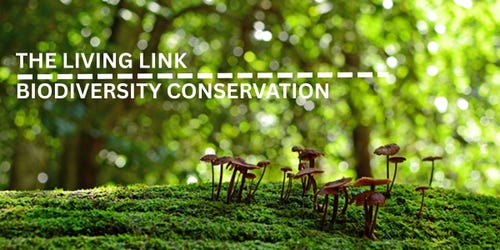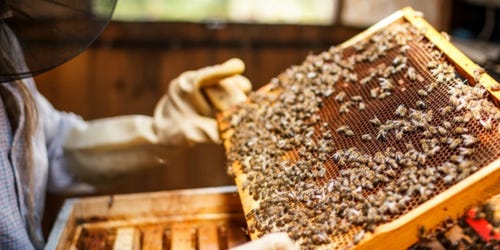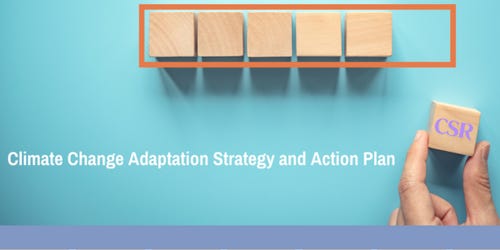The Living Link: Biodiversity is Our Social Backbone | The Impact Post
Issue # 53 | Fri, 30 May 2025
Dear NuSocia Patrons,
In a world grappling with urgent climate challenges, the spotlight often falls on cutting carbon emissions and boosting renewable energy. But, we frequently overlook a silent hero in our collective climate resilience journey: the profound, intricate connection between biodiversity and social impact. It's a critical oversight, one that translates into alarmingly low Corporate Social Responsibility (CSR) spending in this crucial area.
It's time to recognize that healthy ecosystems and thriving species aren't just about preserving nature for its own sake. They are inextricably linked to the very fabric of our lives: supporting diverse livelihoods, providing the foundation for our nutrition and food security, safeguarding public health through natural systems that filter water and air, and offering essential natural buffers against the worst effects of climate change.
In the edition, we bring to you a framework for an efficient integration of biodiversity initiatives to your portfolio, use cases of brilliant conservation projects with positive impact on livelihoods, strategies to support India’s climate adaptation action plan, and the list of top fellowships to learn more about this space.
What Makes You a Trailblazer in the Conservation of Biodiversity?
India, a biodiversity-rich nation with four global hotspots, faces a challenge in directing Corporate Social Responsibility (CSR) funds towards environmental sustainability. Despite ecological vulnerability and the risk of species extinction, only a small percentage of CSR spending addresses these issues. This article explores what it means to be a trailblazer in biodiversity conservation and highlights programs that have gone beyond token efforts to create measurable and long-term impacts through vision, integration, innovation, and community engagement.
Join the Sustainability Center of Excellence in uncovering novel approaches to biodiversity conservation, understanding biodiversity frameworks and use this article to take a quiz! Find where your organization stands in the Biodiversity Maturity Assessment.
The Buzz that Feeds Us All
The importance of bees, particularly for food systems and livelihoods, is especially an important conversation in India. In this article, the Public Health Center of Excellence highlights how declining bee populations threatens our food and health systems and how the work of Under The Mango Tree Society (UTMT Society) has worked towards mitigating those challenges.
Learn how bee conservation connects to public health, nutrition, and several Sustainable Development Goals (SDGs), and how you can contribute to these efforts.
CSR's Role in India's Climate Future: A Focus on Adaptation
In this article, the NuSocia Translational Center brings it full circle. Climate change threatens biodiversity and declining biodiversity exacerbates climate change. Climate change poses significant threats to India's socio-economic landscape, disproportionately impacting vulnerable populations despite the country's relatively low historical contribution to global emissions. This article explores the necessity of prioritizing adaptation efforts over mitigation in India's climate response strategy and highlights current resilience-building initiatives, identifies strategic intervention points for Corporate Social Responsibility (CSR), and provides actionable recommendations for stakeholders, including corporate entities and policymakers.
Biodiversity Pulse
Your RESOURCE CENTER
Find all your needs to get involved in biodiversity
Get Involved With Biodiversity!
Climate change disproportionately affects women and marginalized genders, yet they are also powerful agents of change, possessing unique knowledge for effective climate solutions.
Here is a spotlight of impactful fellowships for Indian professionals, selected to cater to diverse experiences and career stages, fostering leadership at this crucial nexus.
WomenLeaders India Fellowship (Reliance Foundation & Vital Voices)
CEEW Global South Fellowship (Council on Energy, Environment and Water)
The Kunming-Montreal Global Biodiversity Framework (GBF)
You may have heard of the Paris Agreement, but do you know the GBF?
This is arguably the most significant recent development. Adopted in December 2022, the GBF sets ambitious targets for 2030 and 2050, aiming to halt and reverse biodiversity loss.
30x30 Target: Conserving at least 30% of the world's lands and waters by 2030.
Restoration: Significant restoration of degraded ecosystems.
Sustainable Use: Promoting sustainable use of biodiversity and equitable sharing of benefits from genetic resources (including digital sequence information - DSI).
Finance: Mobilizing significant financial resources for biodiversity, including through new mechanisms like the Cali Fund.
Inclusion: Greater recognition and inclusion of Indigenous Peoples and Local Communities (IPLCs) as stewards of biodiversity, formalizing their role in global policy.








